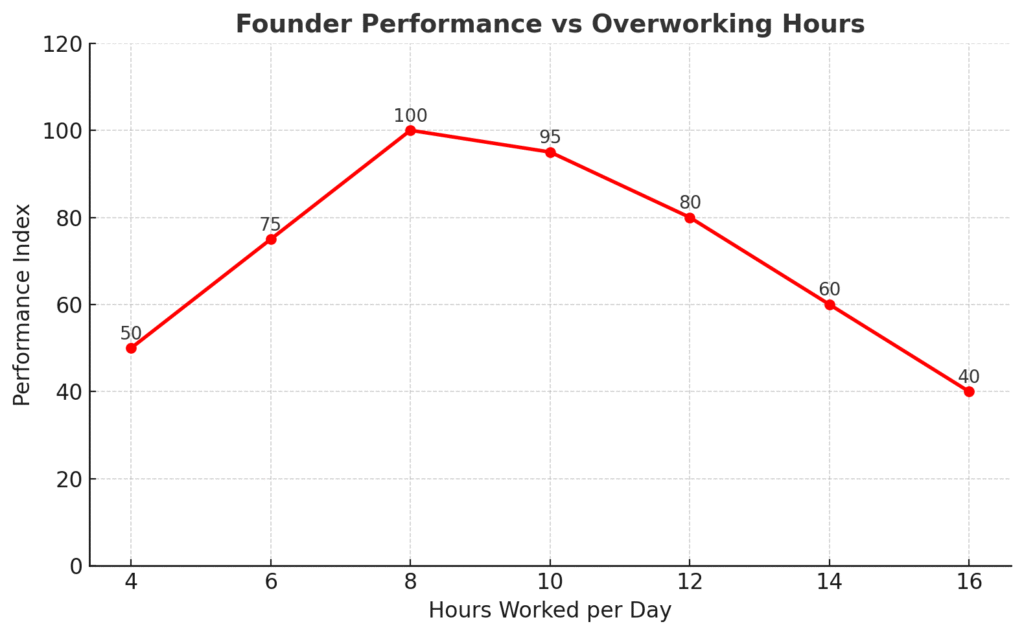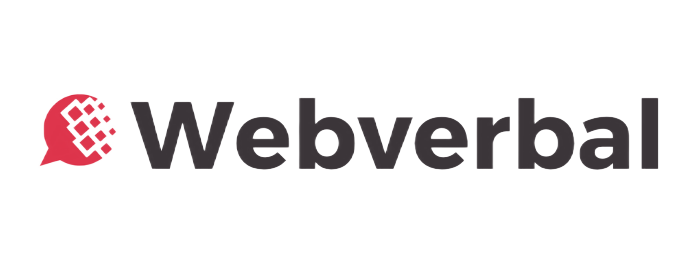Table Of Content
- The Rise of Hustle Culture in Startups
- The Case for Hustle
- The Hidden Costs of Overworking
- Contrarian View: Sustainable Success in Startups
- What Founders Should Do Instead
- Conclusion & Webverbal’s Pulse
- FAQs
- What is the founder hustle myth?
- Does hustle lead to startup success?
- Why is overworking harmful for founders?
- How can founders avoid burnout?
- What’s the alternative to hustle culture in startups?
“Work 18 hours a day.”
“Sleep is for losers.”
“Founders must hustle 24/7 if they want to succeed.”
This is the advice young entrepreneurs hear on LinkedIn threads, podcasts, and startup stages. Hustle has become a badge of honor — proof of commitment and grit.
But here’s the contrarian truth: overworking doesn’t guarantee startup success. In fact, it often accelerates failure.
At Webverbal, we believe hustle culture has done more damage to founders than good. Burnout, poor decisions, broken teams — these are the real outcomes of the hustle myth.
So in this Pulse, we ask: does overworking really lead to success, or is hustle just a cultural trap founders need to escape?
The Rise of Hustle Culture in Startups
The hustle myth didn’t appear out of nowhere. It grew out of three overlapping forces:
- Silicon Valley storytelling — Stories of Elon Musk sleeping at Tesla factories or Steve Jobs working obsessively have been glorified as formulas for success.
- Venture capital pressure — Investors push founders to scale faster than reality allows. Hustle becomes survival strategy.
- Indian work ethic culture — In India, long hours have always been seen as proof of discipline. Startups simply repackaged it as “hustle.”
Social media added fuel: #RiseAndGrind became aspirational. LinkedIn posts about 4 AM wakeups went viral. Suddenly, working more wasn’t just personal choice — it became a founder identity.
But glorifying hustle ignores the wreckage: mental health struggles, broken families, and startups that scaled chaos instead of clarity.
The Case for Hustle
To be fair, hustle advocates aren’t completely wrong. There are moments in startup journeys where intense, focused work is unavoidable:
- Early-stage product building — When resources are scarce, founders often wear multiple hats.
- Fundraising sprints — Meeting 50 investors in 30 days isn’t possible without relentless effort.
- Crisis situations — When servers crash or competitors strike, quick all-nighters save companies.
In these moments, hustle creates momentum. Investors often back founders who are “all in.” Teams feel inspired when leaders lead from the front.
But here’s the key: short-term hustle may be necessary. Long-term hustle is unsustainable.
What works in a sprint kills you in a marathon. And startups are marathons.
The Hidden Costs of Overworking

Founders often mistake exhaustion for progress. But overworking carries hidden costs:
a. Decision fatigue
Sleep-deprived founders make poor strategic calls. Many Indian startups chasing “growth at all costs” failed not from lack of hustle, but from bad judgment.
b. Broken team culture
If the founder works 18 hours, the team feels pressured to do the same. This creates resentment and burnout across the company.
c. Health consequences
Heart disease, stress disorders, depression — these don’t show in pitch decks, but they silently erode founder capacity.
d. Innovation decline
Great ideas require clear thinking, not exhausted firefighting. Hustle mode often prioritizes urgent over important.
e. False success signals
Working harder feels like progress, even when it’s wheel-spinning. True progress comes from clarity, not chaos.
The worst irony? Overworking often shortens founder lifespan in startups. Most companies don’t die from lack of hustle — they die from lack of clarity and resilience. According to Harvard Business Review, overworked leaders are far more prone to poor decision-making and short-term thinking — two silent killers in startups.
Contrarian View: Sustainable Success in Startups
The real startup superpower isn’t hustle. It’s clarity + consistency.
Founders who last are those who:
- Prioritize rest as strategy → Zoho’s Sridhar Vembu runs a global SaaS giant from rural Tamil Nadu, proving balance matters.
- Build strong teams early → Zerodha’s success wasn’t hustle; it was sustainable culture and profit-first discipline.
- Choose patience over hype → Entrepreneurs in Bharat towns can’t burn cash like urban unicorns. They win with discipline, not all-nighters.
The contrarian truth: long-term startup success looks boring from the outside. It’s not viral hustle posts. It’s consistent execution, healthy teams, and clear focus.
(Read also: The Founder’s Clarity Code)
What Founders Should Do Instead
So if hustle isn’t the answer, what is?
a. Work in clarity cycles → Deep work for focused hours, then recovery.
b. Build systems early → Replace founder hustle with scalable processes.
c. Protect health as asset → Fitness, sleep, meditation aren’t luxuries — they’re startup infrastructure.
d. Measure output, not hours → Productivity is not about time spent, but results achieved.
e. Normalize rest in culture → Teams follow what founders model. Show them success doesn’t mean burnout.
Founders must realize: hustle is a phase, not an identity. Your company won’t win because you worked longer; it will win because you worked clearer.
Conclusion & Webverbal’s Pulse
Hustle makes for great LinkedIn posts. But here’s the pulse: the founder hustle myth is one of the most dangerous lies in the startup ecosystem.
Yes, there are seasons of hustle. But success isn’t a function of hours — it’s a function of clarity, resilience, and sustainable execution.
The startup ecosystem must stop glorifying exhaustion as progress. The real heroes aren’t the ones working till 4 AM every night. They’re the ones who build companies that last for decades — without burning themselves or their teams out.
Founders, remember: your job isn’t to hustle endlessly. Your job is to create clarity endlessly.
That’s the contrarian truth. That’s the pulse.
FAQs
What is the founder hustle myth?
It’s the belief that overworking 18-hour days guarantees startup success, when in reality it often leads to burnout and poor decisions.
Does hustle lead to startup success?
Short-term hustle may help during product launches or crises, but long-term success requires clarity, sustainable systems, and healthy teams.
Why is overworking harmful for founders?
It causes decision fatigue, health issues, broken culture, and shortens founder resilience.
How can founders avoid burnout?
By prioritizing clarity, delegating early, building systems, and protecting their health as a core business asset.
What’s the alternative to hustle culture in startups?
The alternative is sustainable execution: clarity cycles, patient capital, team alignment, and resilience-first culture.




